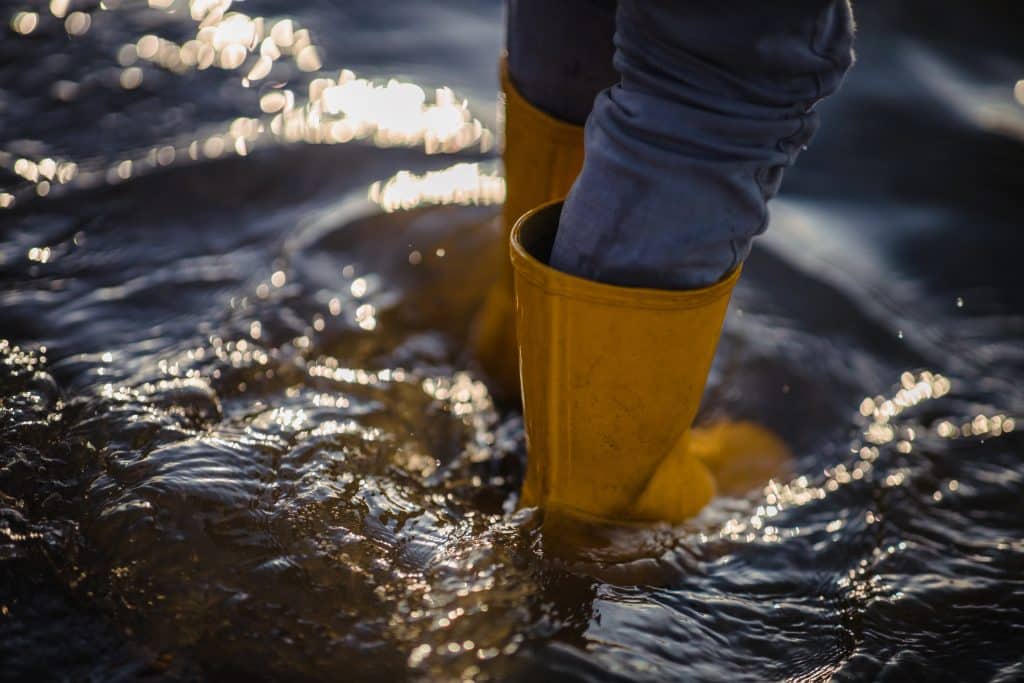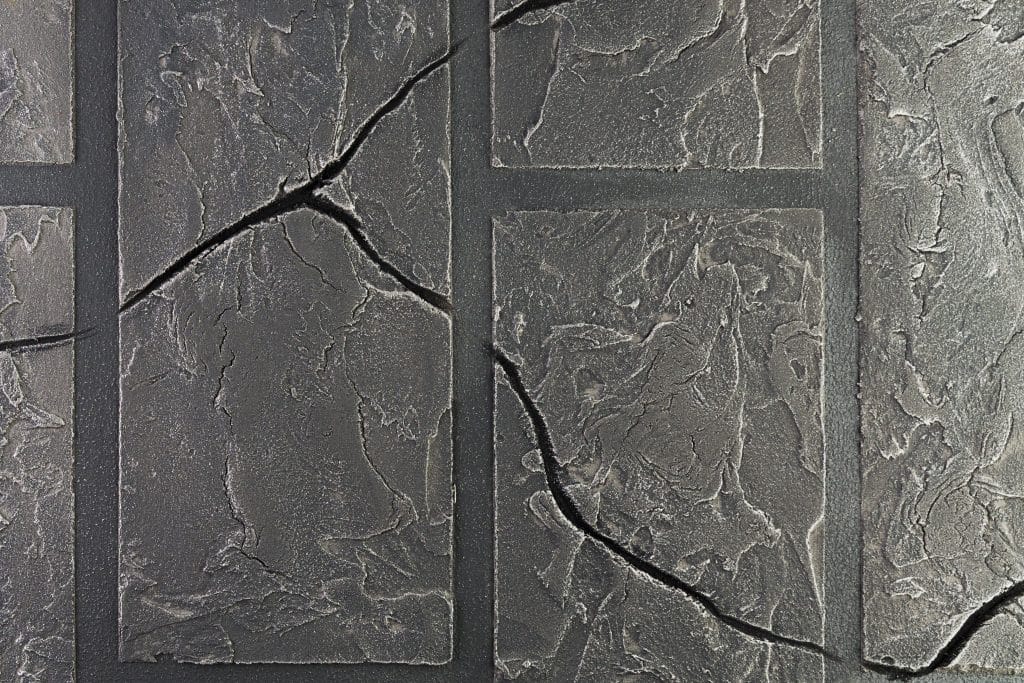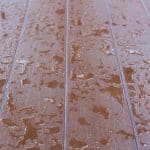[toc]
The most important thing is the weather in the house, but what if, not metaphorically speaking, water leaking into basement after heavy rain? For some, it can cause anxiety, and for others, serious troubles with well-being and money leaks; only here you definitely do know where they are leaking.
This issue will never bother those who have thought ahead and ordered professional basement waterproofing by a Willfix team. Quality work has protected them from all sorts of mishaps.
Fortunately, even those who didn’t think ahead have a chance to call a team that will do a free estimate and offer their services at a price that won’t bite.
As you can see, there is nothing wrong with being wrong. You just need to infer by figuring out why it happened and how to keep the weather acceptable in both literal and figurative homes.
Causes of Basement Water Leaking into Basement After Heavy Rain
If Archimedes had lived in the present day, he might have gotten into basement waterproofing. He would have explained how hydrostatic pressure is created and why water penetrates the basement in simple terms.
It might sound like this: when it rains heavily, groundwater rises and exerts pressure on the walls of the basement. If the basement has not been waterproofed properly, water gets in through cracks. Over time, this pressure deteriorates the foundation and can lead to severe consequences.
Signs of leakage
If the house was not designed to protect the basement from heavy rains, the walls may be the last barrier to water entering.
Several signs indicating the possibility of flooding:
- Dampness on the walls;
- Musty odour;
- Peeling paint;
- Rust on metal objects.
More serious harm may follow after, such as the destruction of structural elements of the house.
Seasonal impact
At first glance, it may seem that a leaky basement is a rare occurrence that only happens in the fall. However, this is not true. All seasons carry about the same danger to your foundation.
In the winter, melting snow soaks into the ground, which poses a threat to the foundation. Thawing snow in the spring increases hydrostatic pressure. Melting can cause the foundation materials to expand and shrink, creating new cracks and aggravating old ones.
Summer also sees heavy rains, but less frequently. Therefore, it is best to have foundation-strengthening work done in the summer.
If you need such work, contact Willfix. We do basement underpinning Toronto and any other region of Canada.
But remember, only ongoing maintenance and monitoring will minimize the risk of flooding.

Identifying Water Entry Points
To avoid flooding after heavy rain:
- Find any weak spots in your home beforehand through which water can enter;
- Inspect the walls and floor for cracks, gaps and holes;
- Pay attention to any damage or signs of wear and tear that could allow water to seep in.
Remember that small cracks during a downpour can become serious routes for water. If you find any holes, repair them immediately to prevent further damage.
Addressing Foundation Grading
In order to protect the foundation of the house from water accumulation, it is necessary to create a slight slope. If the slope is directed towards the house, it can lead to severe problems. Water will flow towards the foundation, leading to waterlogging.
If the basement walls are improperly waterproofed, they may not hold up, and then a flood cannot be avoided. Therefore, homeowners should check the slope of their lot annually. Over time, the landscape may change, or soil erosion may occur, which will affect the slope of the site.
Soil composition
Adding soil with clay content can boost grading effectiveness. Clay has low permeability, which means it doesn’t give water to pass through easily. Mixing clay-rich soil into your existing grade helps create a barrier that further protects your foundation from water
Maintaining Gutters and Downspouts
Gutters are meant to collect rainwater and channel it away from your home. However, over time, leaves, branches and other debris can accumulate in them, causing clogging. If water doesn’t find its way out, it can overflow and cause water leaking into basement after heavy rain.
After cleaning the downspouts, pour water into them to test their functionality. Whether the water is flowing correctly and whether there are no hidden clogs.
Sealing Foundation Cracks
Professionals should assess large foundation cracks. These may signal structural damage that requires expert attention. A thorough evaluation will determine if the integrity of your home is at risk.
They’ll examine the crack’s width, depth, and location. If they find a significant issue, they might recommend structural reinforcements. This step ensures your safety and the longevity of any repair work done.
Crack sealing options

For minor cracks, there are several DIY solutions. Hydraulic cement is one option for effectively sealing these fissures. It sets quickly and works well even when applied to damp surfaces, making it ideal for post-rain repairs.
Another method involves epoxy injections which bond the cracked walls, restoring some of their original strength. Epoxy creates a waterproof seal that can prevent future water seepage.
Implementing Sump Pumps
If the house is located in an area with a high water table or in a region where storms are frequent, it will definitely need a reliable drainage system. Sump pumps help to keep the basement dry, especially when combined with an internal drainage system such as a French drain.
Together, they effectively drain water from the basement to the outside. Before installation of the pump, there should be a pit at the lowest point in the basement. The pump goes inside this pit, and it automatically turns on when the water reaches a certain level.
By automating the process, the homeowner doesn’t have to worry about removing moisture — the pump will do it for them. It will prevent water leaking into basement after heavy rain and during snowmelt.
Expert opinion
Evelyn J. Kiser
Evelyn is an expert with over 12 years of experience in basement lowering, foundation strengthening and waterproofing. She has earned a reputation as a professional who solves complex problems and knows the answers to all questions.
Reading this post does not waterproof your basement from heavy rains — it’s certainly not pleasant. But now you have everything you need, in theory, to solve the problem of water leaking into basement after heavy rain.
If more serious problems arise, don’t hesitate to call for professional help. WillFix approaches every waterproofing project with the utmost dedication. Our professionals pay special attention to safety measures and building codes.
Water Leaking into The Basement After Heavy Rain FAQ
-
How to avoid flooding?
Find any weak spots through which water can enter. Inspect the walls and floor for cracks, gaps and holes. If you find any holes, repair them immediately to prevent further damage. Pay attention to any damage or signs of wear and tear that could allow water to seep in.
-
What is the most dangerous season for a flood?
There's no particular season. All seasons carry about the same danger to your foundation.
-
Why epoxy injections are profitable for walls?
Epoxy creates a waterproof seal that can prevent future water seepage.
-
Why do homeowners have to check the slope of their lot annually?
That's because the landscape may change, or soil erosion may occur, affecting the slope of the site.

